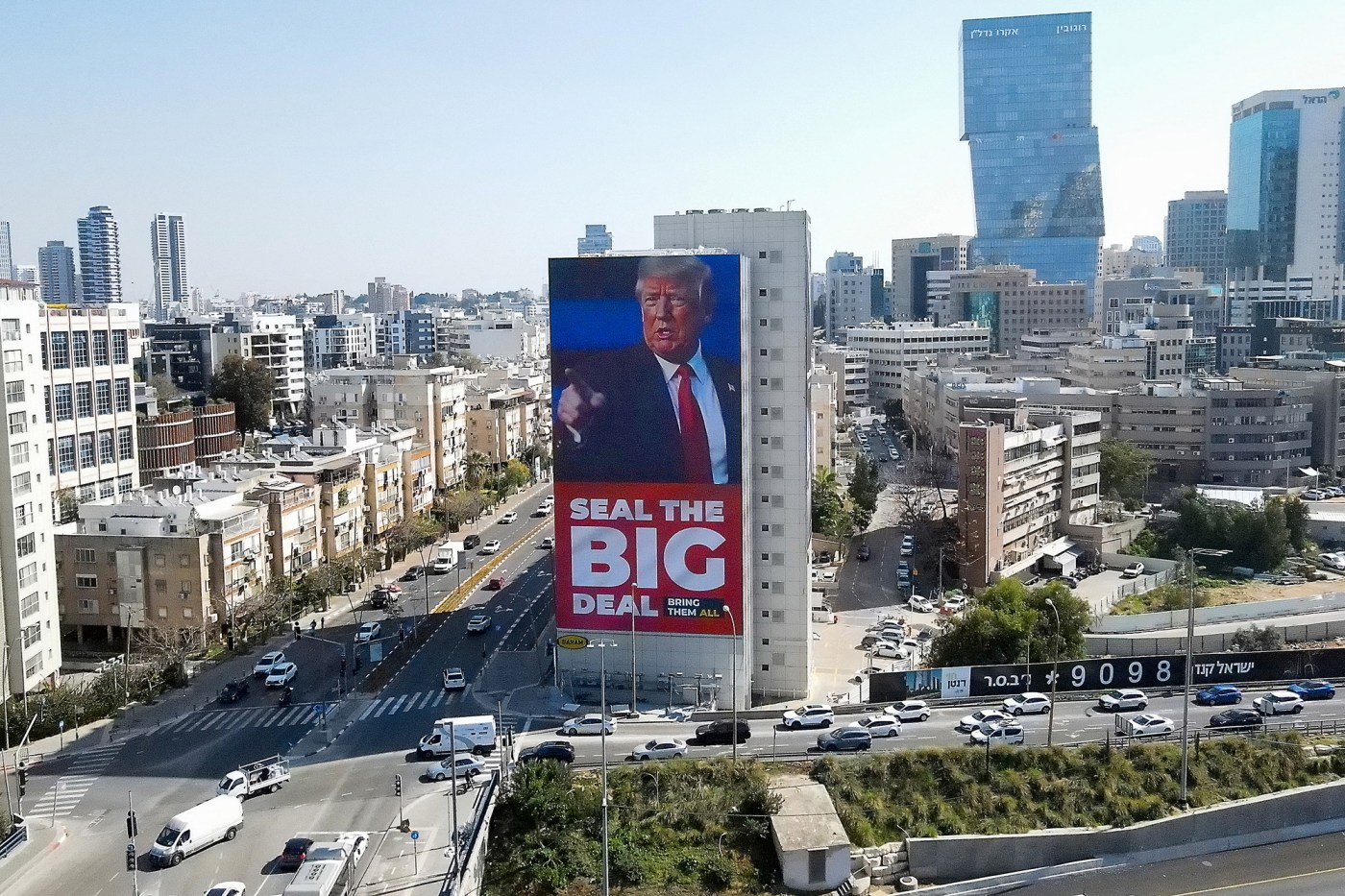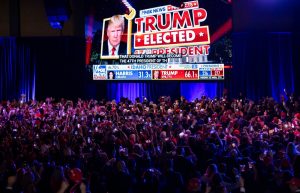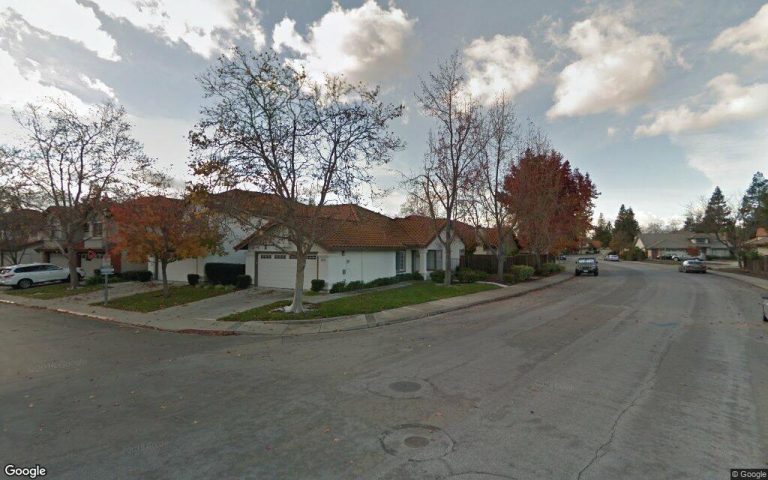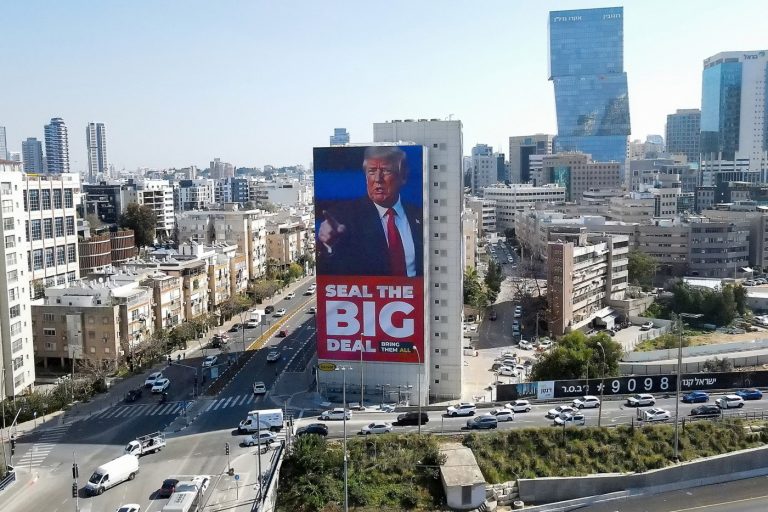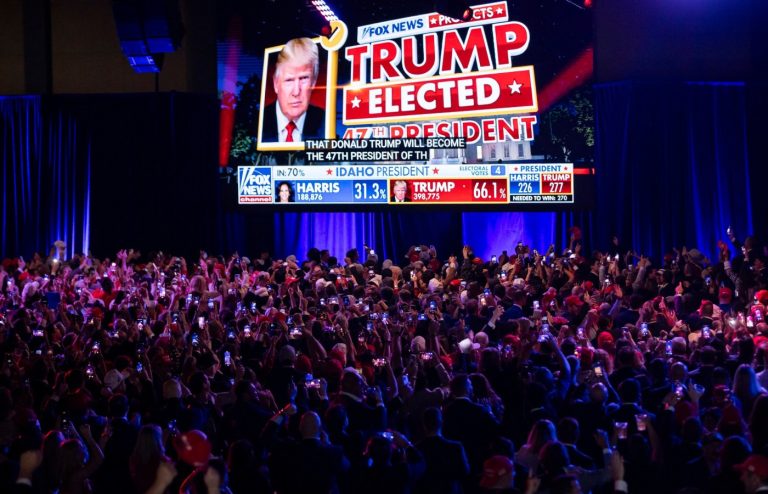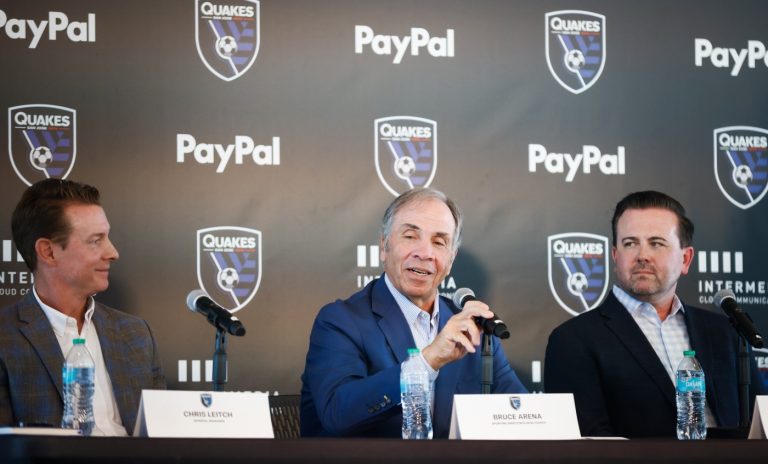By Kevin Liptak | CNN
(CNN) — President Donald Trump said Tuesday that the US “will take over” the Gaza Strip, after saying earlier that he doesn’t think there is a permanent future for Palestinians in Gaza.
“The US will take over the Gaza Strip and we will do a job with it too,” Trump said during a joint press conference alongside his Israeli counterpart Benjamin Netanyahu. “We’ll own it and be responsible for dismantling all of the dangerous unexploded bombs and other weapons on the site, level the site and get rid of the destroyed buildings.”
Asked whether he was willing to send US troops to fill a security vacuum in Gaza, Trump did not rule it out.
“As far as Gaza is concerned, we’ll do what is necessary. If it’s necessary, we’ll do that. We’re going to take over that piece that we’re going to develop it,” he said.
Trump’s comments are a remarkable assertion from a sitting American president, particularly one who rose to political power in the United States through his criticism of America’s longest wars in the Middle East.
“I do see a long-term ownership position, and I see it bringing great stability to that part of the Middle East, and maybe the entire Middle East,” Trump told reporters in the East Room.
“This was not a decision made lightly. Everybody I’ve spoken to loves the idea of the United States owning that piece of land, developing and creating thousands of jobs with something that will be magnificent.”
Trump, a former real estate developer, said he had studied the matter “closely, over a lot of months.”
Speaking earlier Tuesday, Trump suggested Gazans move to a new location provided by one or more nations in the Middle East.
“I mean they’re there because they have no alternative. What do they have? It is a big pile of rubble right now,” Trump said moments before hosting Netanyahu for Oval Office talks.
Trump’s suggestion that Gazans leave the strip permanently amounts to a provocative stance that will endear him to Israel’s most conservative politicians but is generally a non-starter for Israel’s neighbors, who have said they are unwilling to accept new Palestinian refugees from the enclave.
On Tuesday, Trump framed the matter as a humanitarian one, saying it was impossible to believe anyone would want to remain in the war-torn territory.
“Why would they want to return? The place has been hell,” Trump said, ignoring a reporter who cried out: “Because it’s their home.”
Instead of Gaza, he suggested the Palestinians be provided a “good, fresh, beautiful piece of land” to live.
But under repeated questioning, Trump made clear he did not see a world in which Palestinians ever return to Gaza.
“I don’t think people should be going back to Gaza. I think Gaza has been very unlucky for them.” He said, “Gaza is not a place for people to be living.”
Netanyahu, sitting alongside Trump in the Oval Office, smiled as Trump was speaking. The Israeli leader, under conflicting pressures domestically, was in Washington to ascertain exactly where Trump stands on the next phase of a ceasefire in Gaza.
But Trump’s dim views of Gaza as a permanent home for Palestinians was certain to provide grist for far-right allies of the Israeli leader, who have called on Netanyahu to abandon the temporary truce that was struck last month.
Netanyahu’s visit was expected to last several hours and include a joint press conference, all meant to demonstrate Trump’s solidarity with Israel.
The comity between the men could belie a relationship that’s more complicated than it sometimes appears – with nothing less than the future of the Middle East potentially riding on Trump’s words.
Trump has claimed credit for the hostages-for-ceasefire agreement struck in the days before he entered office – and even officials in the outgoing Biden administration acknowledged Trump’s imminent arrival helped apply pressure on Israel and Hamas.
Netanyahu, perhaps seeking to ingratiate himself to his host, praised Trump’s efforts.
“I think President Trump added great force and powerful leadership to this effort,” Netanyahu said in the Oval Office.
But for all of his prodding to get the deal inked, Trump will still need to oversee the remaining two phases of the three-phase plan. He didn’t sound particularly confident a day before meeting Netanyahu.
“I have no assurances that it’ll hold,” he said in the Oval Office, where he’d summoned reporters to watch him sign some papers. “And I’ve seen people brutalized. I’ve never – nobody’s ever seen anything like it.”
He sounded slightly more optimistic a day later.
“We’ll see what happens. We’re dealing with very complicated people, but a deal can absolutely get done,” he said alongside Netanyahu on Tuesday.
There’s plenty for Trump and Netanyahu to discuss beyond the immediate matter of the ceasefire agreement. There’s the question of Gaza itself, which Trump has previously said should be cleared out for rebuilding, with the Palestinians who live there moved to Egypt and Jordan (a topic of discussion likely to continue when Jordan’s King Abdullah visits the White House next week).
“I would like to see Jordan, I’d like to see Egypt take some,” Trump said again Tuesday, just before Netanyahu arrived. “Look, the Gaza thing has not worked. It’s never worked.”
And then there is the prospect of a broader normalization of relations between Israel and its Arab neighbors, principally Saudi Arabia, that former President Joe Biden had been pursuing before the October 7, 2023, attacks. Trump, who openly pines for a Nobel Peace Prize, may see his opportunity in such a pursuit, which could transform the entire Middle East and create a new bulwark against Iran, a common foe to Jerusalem and Riyadh.
Whether Netanyahu is interested in diplomacy – or whether he instead sees Trump’s arrival in Washington as a moment to take decisive action against Iran, potentially even taking out its nuclear program – remains to be seen.
There is already speculation Netanyahu could use the talks to take Trump’s temperature on a direct strike, seizing a moment when Iranian proxies have been decimated, Iran’s nuclear ambitions appear to be accelerating and while he has friendlier ties to Washington.
For his part, Trump has not sounded particularly enthusiastic about starting a new conflict with Iran.
“Hopefully that can be worked out without having to worry about it. It would really be nice if that could be worked out without having to go that further step,” he said last month when asked about a strike on Iranian facilities.
A complicated relationship
By the end of Biden’s term, relations were so strained between the American and Israeli leaders that they went months without speaking, despite the ongoing war in Gaza and intensive efforts by Biden’s aides to broker a cease-fire.
In the lead-up to last November’s election, there was little question among Biden’s team that Netanyahu favored a Trump victory, believing he would enjoy a far wider remit from the American government to prosecute his war aims with Trump in office instead of then-Vice President Kamala Harris.
Those predictions have not been wrong.
Already, Trump has lifted a hold on heavy bomb deliveries to Israel, rolling back one of the few Biden-era policies meant to exert leverage on Israel amid its war in Gaza.
He could go even further this week. Netanyahu and his delegation plan to press Trump’s administration to move forward with billions of dollars in pending arms sales, including thousands of new bombs, missiles, artillery and other weapons, during this week’s visit.
While some of the items could take a year or more to produce, deliveries of the bombs would begin within the next few months.
If Trump goes ahead, it would represent a new level of support to Israel from the United States, and a signal of Trump’s willingness to indulge Netanyahu’s requests at a moment of deep uncertainty in the Middle East.
But while Trump is popular in Israel, and Netanyahu enthusiastically welcomed his return to the White House, things haven’t always been so cheerful.
When Netanyahu congratulated Biden on his election victory in 2020, Trump was enraged at what he saw as betrayal. In the months that followed, Trump accused Netanyahu of disloyalty and fumed to the esteemed Israeli reporter Barak Ravid, now a CNN analyst: “F**k him.”
Even three years later, after Hamas launched the worst terrorist attack in Israel’s history on October 7, 2023, it was clear Trump’s sore feelings hadn’t entirely faded.
“(Netanyahu) was not prepared. He was not prepared, and Israel was not prepared,” Trump said in an interview shortly after the attacks, comments that drew condemnation even from Republicans.
Netanyahu undoubtedly hopes the animosity will be forgotten when he visits on Tuesday. It seems almost certain his interactions with Trump will contain none of the open discord that colored his relationship with Biden in the final year of his presidency.
What is clear is Netanyahu’s desire to gather a wide range of opinions while he is in town. The prime minister is planning to remain in Washington well beyond his Tuesday talks with Trump. He arrived to Blair House, the presidential guest residence, late Sunday and is expected to stay until the end of the week, including for meetings on Capitol Hill.
For all of their vast differences, Trump and Biden do share a philosophy when it comes to engaging with their foreign counterparts: dealing directly is the best way to make progress.
Related Articles
Trump wants to ‘just clean out’ Gaza, send refugees elsewhere
Trump ends Biden’s hold on 2,000-pound bombs for Israel
Israel launches major operation in West Bank
Stephens: The Israeli right may soon be disenchanted with Trump
‘A moment of relief’: Pro-Palestinian and Jewish Bay Area advocates react to possible Gaza ceasefire
Eight years ago, Trump’s first foreign guest at the White House was the United Kingdom’s then-Prime Minister Theresa May, whose visit may be best remembered for photographs of May and Trump clasping hands as they gingerly descended a ramp along the West Colonnade.
May’s early trip to Washington, designed in part to convince Trump not to withdraw from NATO, did not portend particularly warm ties for the rest of his term. He repeatedly criticized her handling of Brexit, although by the time May resigned from office they seemed to have patched things up.
With Netanyahu, however, Trump has an altogether more immediate task.
This story and headline have been updated with additional developments.
